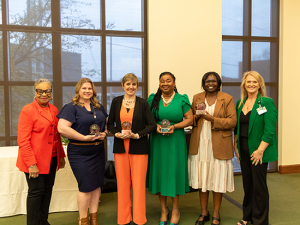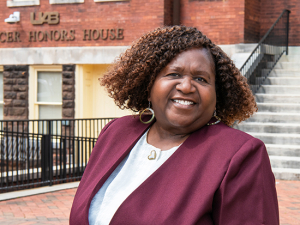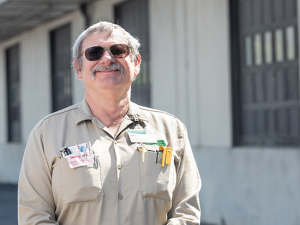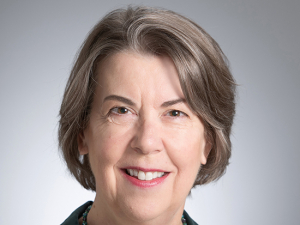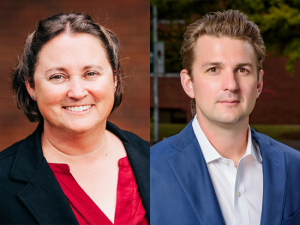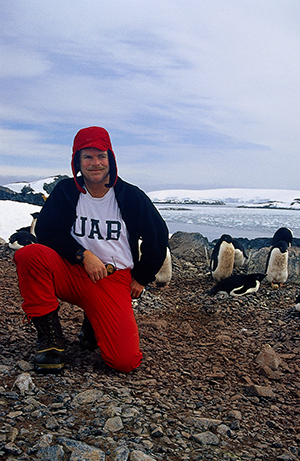 James McClintock, Ph.D., Endowed Professor of Polar and Marine Biology and pictured here in Antarctica in 2008, has co-directed 15 research expeditions and led 10 climate-change philanthropic cruises to the continent.James McClintock, Ph.D., Endowed Professor of Polar and Marine Biology, is the inaugural recipient of the 2018 SCAR Medal for Education and Communication, awarded by the Scientific Committee on Antarctic Research (SCAR), for his decades-long educational efforts emphasizing Antarctic climate change and impacts on marine biology. The medal will be awarded June 21 during the Polar 2018 Conference Dinner in Davos, Switzerland.
James McClintock, Ph.D., Endowed Professor of Polar and Marine Biology and pictured here in Antarctica in 2008, has co-directed 15 research expeditions and led 10 climate-change philanthropic cruises to the continent.James McClintock, Ph.D., Endowed Professor of Polar and Marine Biology, is the inaugural recipient of the 2018 SCAR Medal for Education and Communication, awarded by the Scientific Committee on Antarctic Research (SCAR), for his decades-long educational efforts emphasizing Antarctic climate change and impacts on marine biology. The medal will be awarded June 21 during the Polar 2018 Conference Dinner in Davos, Switzerland.
McClintock is acclaimed in the field of Antarctic research; his work has been featured in American Scientist, the Los Angeles Times, Smithsonian Magazine, Nature and the Wall Street Journal. He has written two books, 2012’s “Lost Antarctica — Adventures in a Disappearing Land” and 2015’s “A Naturalist Goes Fishing — Casting in Fragile Waters from the Gulf of Mexico to New Zealand’s South Island,” both acclaimed by reviewers such as Bill Gates and E.O. Wilson. On the coast of Antarctica, just northwest of McMurdo Station, is a spot named McClintock Point in his honor by the U.S. Board of Geographic Names.
|
“Antarctica provides a multitude of opportunities to serve as an education model. Its raw beauty, remarkable geology and oceanography, stunning wildlife, rigorous and changing climate, fascinating history of exploration and its fragility provide an unparalleled backdrop for science education and communication.” |
The SCAR Medal is another addition to that long list of accomplishments, but according to McClintock, it’s not his own recognition or acclaim he’s particularly concerned about.
“What I like most about this award is that its creation reflects the growing recognition across the scientific community that science education and communication are essentially elements to effectively addressing pressing issues of science in today’s world,” he said.
McClintock is passionate about speaking and writing on Antarctica, its uniqueness and the importance of protecting the continent. He can trace his passion for finding effective approaches to teaching back to the “wonderful teachers and mentors” he had during his undergraduate and graduate education and strives to implement that passion when educating others about the continent.
“My teaching philosophy is rooted in hands-on experiential learning, and increasingly the use of storytelling to engage a class of students or the general public,” he said. “Already, the award has generated an invitation to speak to a group of international teachers who will be participating in the SCAR conference where my award will be presented.”
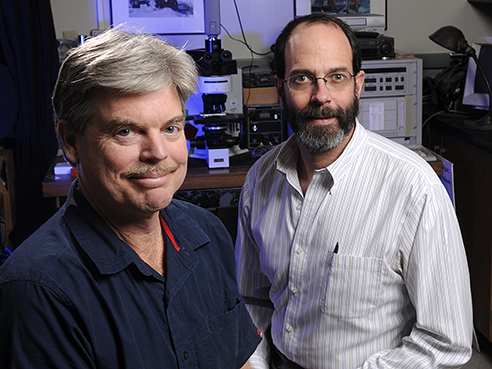 Chuck Amsler (right), a professor in the Department of Biology who is a mission co-investigator with McClintock (left) on research trips to Antarctica, spearheaded the nomination and application process for the award.
Chuck Amsler (right), a professor in the Department of Biology who is a mission co-investigator with McClintock (left) on research trips to Antarctica, spearheaded the nomination and application process for the award.
Chuck Amsler, a professor in the Department of Biology who is a mission co-investigator with McClintock on research trips to Antarctica, spearheaded the nomination and application process for the award — something McClintock said was an honor in and of itself.
|
“My teaching philosophy is rooted in hands-on experiential learning, and increasingly the use of storytelling to engage a class of students or the general public.” |
“Chuck Amsler is an internationally recognized leader in Antarctic marine biology and has a truly outstanding record of integrating innovative science-education outreach and communication with his research programs,” he said.
During his decades as an Antarctic researcher, McClintock has co-directed 15 research expeditions and led 10 climate-change philanthropic cruises to the continent, yet he said he remains overwhelmed by its “prophetic role as a model system to understand, predict and communicate the impacts of global climate change.” A team of UAB researchers led by Amsler, which included Amsler’s wife, Maggie, also a polar researcher, are just completing a four-month season at Palmer Station, Antarctica. Co-leaders McClintock and chemist Bill Baker from the University of South Florida joined the UAB team in Antarctica for the month of March.
“Antarctica provides a multitude of opportunities to serve as an education model,” he continued. “Its raw beauty, remarkable geology and oceanography, stunning wildlife, rigorous and changing climate, fascinating history of exploration and its fragility provide an unparalleled backdrop for science education and communication.”
